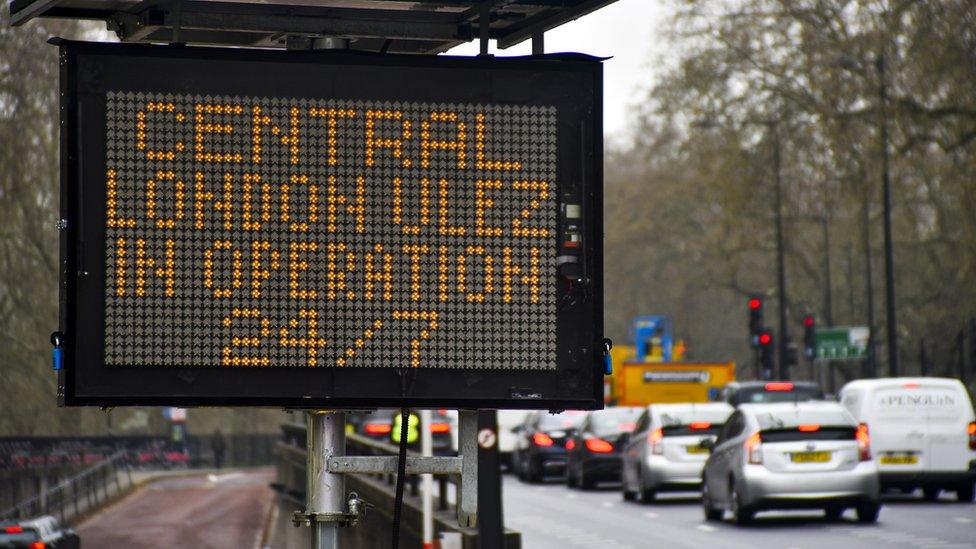Almost 700K cars not ULEZ compliant after scheme expands - RAC
- Published
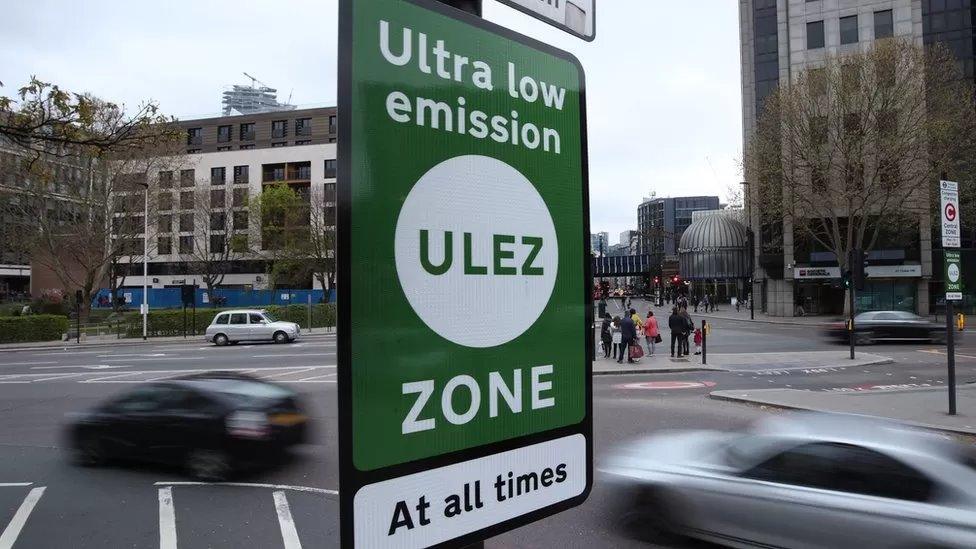
The London mayor's office disputes the RAC's figures about the number of vehicles which will be affected by the expansion
Almost 700,000 cars in London will not be Ultra Low Emissions Zone (ULEZ) compliant when the scheme expands, according to new analysis from the RAC.
The RAC said the figure rises to more than 850,000 when including other non-compliant vehicles in addition to cars.
However, the London mayor's office has disputed the figures.
Transport for London (TfL) has itself claimed nine out of 10 cars seen driving in outer London on an average day meet the ULEZ standards.
Despite repeated requests, the mayor's office has confirmed it will not release, at this time, the full numerical data for non-ULEZ compliant vehicles that will be affected by the expansion.
Aimed at improving air quality, the ULEZ scheme will be expanded to include outer London from 29 August.
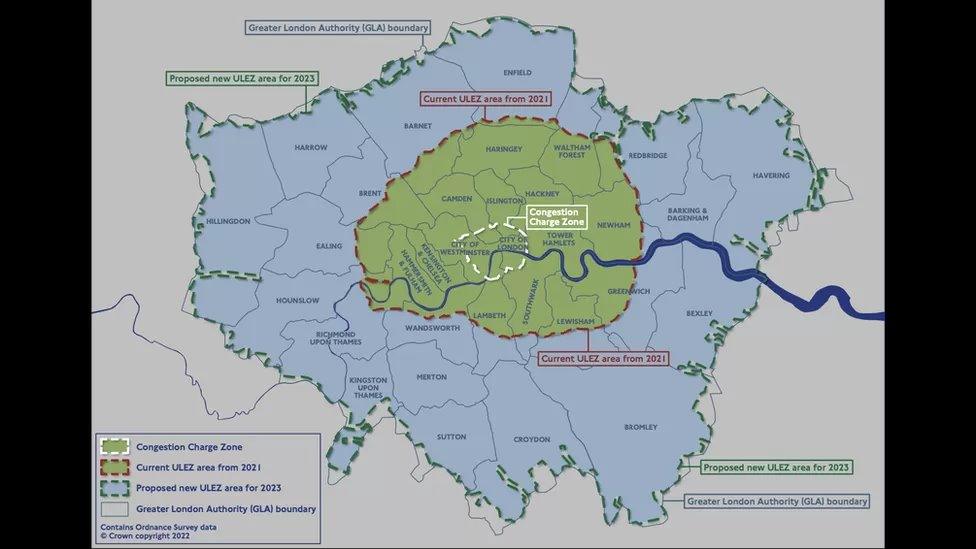
The ULEZ scheme will be expanded to include outer London from 29 August
People across the capital will be subject to a £12.50 daily charge for driving non-compliant vehicles in the zone.
Most diesel cars registered before September 2015, and petrol cars registered prior to January 2006, are liable for the charge.
Driver and Vehicle Licensing Agency (DVLA) figures obtained by the RAC through a Freedom of Information request show that as of February, 691,559 licensed cars in the whole of London fall into one of those categories.
When other vehicles such as vans and lorries are taken into account, the number increases to 851,065.
The data does not include vehicles which enter London from neighbouring counties such as Essex, Hertfordshire, Surrey and Kent.
However, the mayor's office disputed the RAC's figures about the number of vehicles affected by the expansion, and said TfL's own data was a better measure of how many drivers will face charges.
It argued data on the number of registered non-compliant vehicles may include vehicles that are rarely or never used.
In contrast, TfL said footage taken on its cameras in outer London boroughs during February suggested 90% of vehicles driving outside the North and South Circulars on an average day were ULEZ compliant.
The transport body said this represented an increase of 5% compared to its previous estimated data from November 2021, which suggested 85% of cars driving in outer London were ULEZ compliant.
'Massive financial impact'
Nicholas Lyes, head of roads policy at the RAC, said: "Cleaning up London's air should undoubtedly be a priority, but the sheer number of vehicles that don't meet ULEZ emissions standards in Greater London suggests there will be a massive financial impact on motorists and businesses."
Mr Lyes added more "coordination" was needed between the mayor and the government to help "small businesses, tradespeople, NHS staff and carers" from outer London and neighbouring counties, as well as those "who work at night when public transport is greatly reduced".
"We need more creativity from London's mayor and his team to help people out as the current scrappage scheme is akin to using a plughole to drain an Olympic-sized swimming pool - it's simply not big enough for the scale of the job," he added.
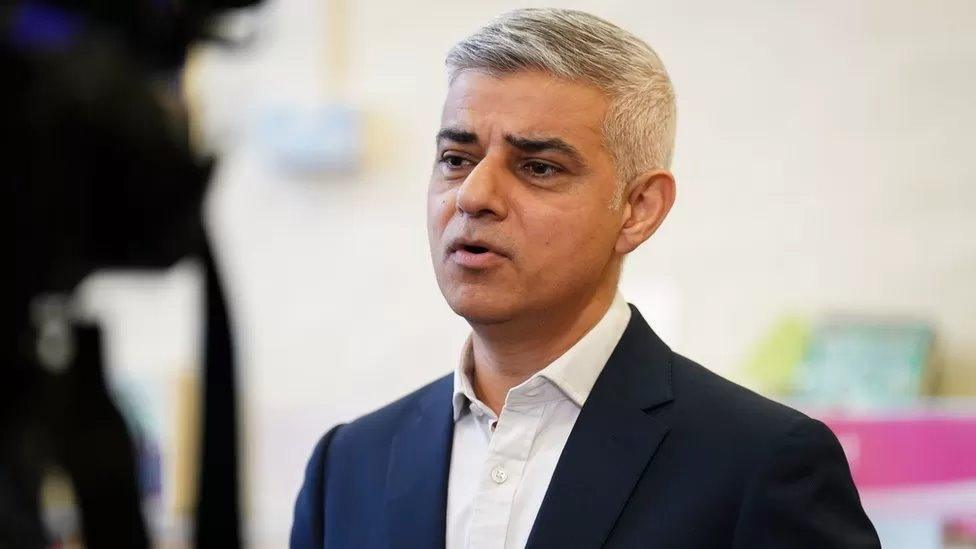
The mayor's office believe the number of compliant vehicles will increase even further before the scheme is expanded
A spokesperson for the mayor said: "The ULEZ is a highly targeted scheme and the latest data from Transport for London shows 90% of cars driving in outer London now meet ULEZ standards.
"The mayor expects the number of compliant vehicles to increase even further over the coming months, but he knows there is more to do to ensure every Londoner can breathe cleaner air.
"For the very small proportion of drivers of non-compliant vehicles, Sadiq has launched the biggest scrappage scheme ever - £110m - to help families on lower incomes, small businesses, charities, sole traders and disabled Londoners replace their vehicle with a less polluting one or move to a cleaner, more active mode of transport."

Follow BBC London on Facebook, external, Twitter , externaland Instagram, external. Send your story ideas to hellobbclondon@bbc.co.uk, external
- Published4 August 2023
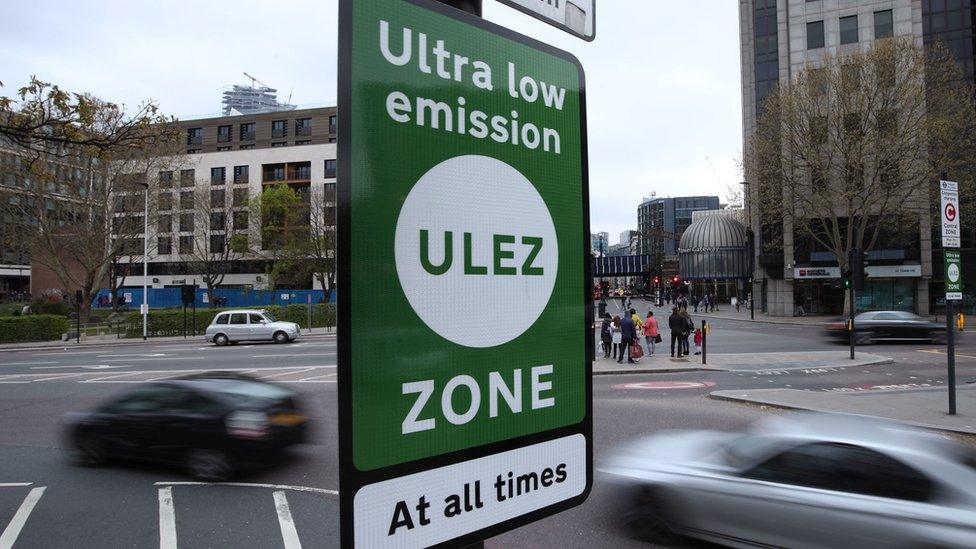
- Published24 February 2023
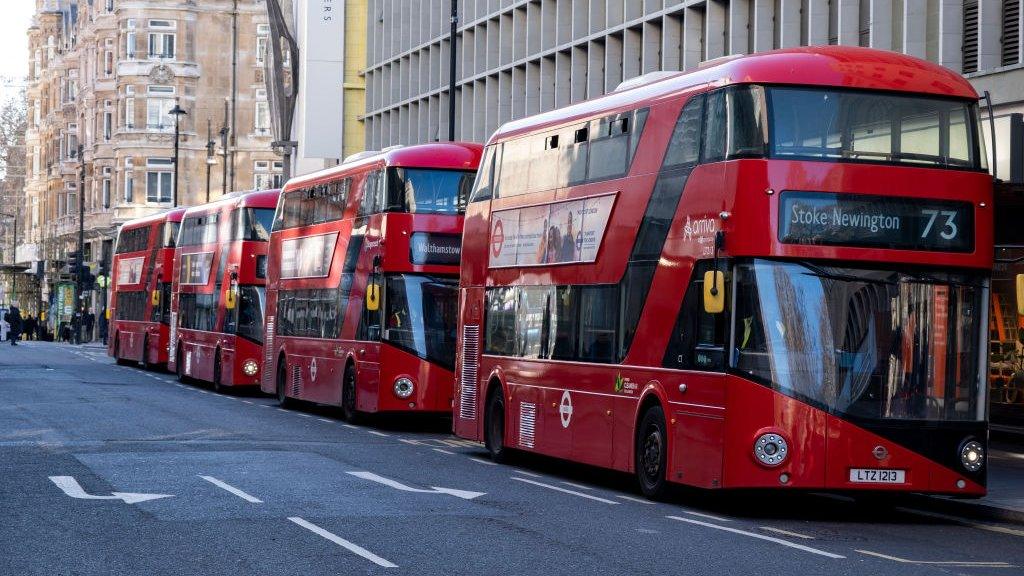
- Published16 February 2023
